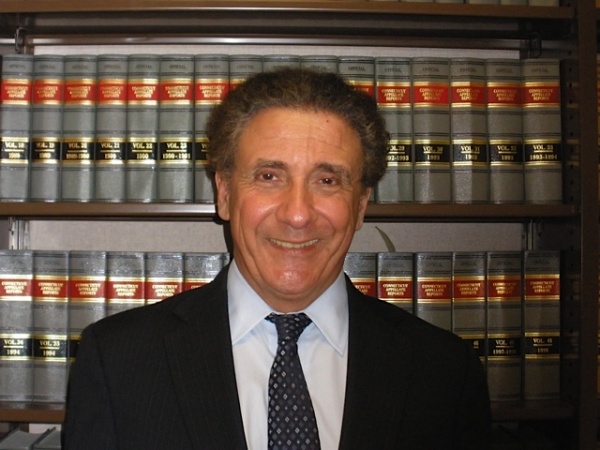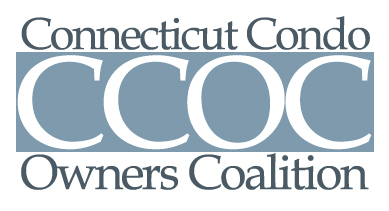What Records Does A Declarant Have To Provide To Unit Owners
A client recently called me to ask whether the Declarant (person or entity that created the condominium) has any legal duty to inform unit owners about the financial status of the condominium during the period the Declarant controls the board of directors, and after the Declarant relinquishes control to the other unit owners.
Declarant Control
By law, a condominium’s Declaration may provide for a period of Declarant control of the association of unit owners, during which a Declarant, or persons the Declarant designates, may appoint and remove the officers and members of the executive board. (The “Declaration” is the document that creates a common interest community, including any amendments.)
Regardless of the period provided in the Declaration, a period of Declarant control terminates no later than the earlier of:
- 60 days after the conveyance of 60% of the units that may be created to unit owners other than a Declarant, except that in the case of a master planned community, control terminates no later than 60 days after conveyance to unit owners other than the Declarant of 60% of the maximum number of units that may be built, if that number is specified, or, if no such number is specified, after conveyance to unit owners other than the Declarant of 300 units;
- two years after the Declarant has ceased to offer units for sale in the ordinary course of business;
- two years after any right to add new units was last exercised; or
- the date the Declarant, after giving notice in a record to unit owners, records an instrument voluntarily surrendering all rights to control activities of the association.
During Declarant Control
During the period of Declarant control, the Declarant must, at least every six months, provide the unit owners with the association’s current financial statement. The statement must be on a cash basis and need not be audited by an independent accountant.
The statement must include: (1) all income and expenses for the calendar year to date; (2) all accounts payable and receivable, including the ages of those accounts and showing all sums due to and from the Declarant and affiliates of the Declarant; (3) the amount of any funded replacement reserves; and (4) the balance of any other funds of the association
After Declarant Control Ends
The law requires that, within 30 days after unit owners other than the Declarant elect a majority of the members of the executive board, the Declarant must deliver to the association all property of the unit owners and of the association held by or controlled by the Declarant, including without limitation the following items:
- The original or a certified copy of the recorded Declaration as amended; the association articles of incorporation, if the association is incorporated; bylaws; minute books and other books and records of the association; any rules and regulations which may have been promulgated;
- an accounting for association funds and financial statements, from the date the association received funds and ending on the date the period of Declarant control ends.
- association funds or control of those funds;
- all of Declarant’s tangible personal property that has been represented by the Declarant to be the association property or, unless the Declarant has disclosed in the public offering statement that all such personal property used in the common interest community will remain the Declarant’s property, all of the Declarant’s tangible personal property that is necessary for, and has been used exclusively in, the operation and enjoyment of the common elements, and inventories of these properties;
- a copy of any plans and specifications used in the construction of the improvements in the common interest community which were completed within two years before the Declaration was recorded;
- all insurance policies then in force, in which the unit owners, the association or its directors and officers are named as insured persons;
- copies of any certificates of occupancy that may have been issued with respect to any improvements comprising the common interest community;
- any other permits issued by governmental bodies applicable to the common interest community and which are currently in force or which were issued within one year prior to the date on which unit owners other than the Declarant took control of the association;
- written warranties of the contractor, subcontractors, suppliers and manufacturers that are still effective;
- a roster of unit owners and mortgagees and their addresses and telephone numbers, if known, as shown on the Declarant’s records;
- employment contracts in which the association is a contracting party; and
- any service contract in which the association is a contracting party or in which the association or the unit owners have any obligation to pay a fee to the persons performing the services.
The financial statements that the Declarant must turn over must be audited by an independent certified public accountant and must be accompanied by the accountant’s letter, expressing either:
a) the opinion that the financial statements present fairly the financial position of the association in conformity with generally accepted accounting principles or
b) a disclaimer of the accountant’s ability to attest to the fairness of the presentation of the financial information in conformity with generally accepted accounting principles, and the reasons therefor.
The expense of the audit may not be paid for or charged to the association.
This article is for general informational purposes only, does not constitute and should not be relied upon as legal advice and does not create an attorney-client relationship between the author or the author’s law firm (Gordon, Muir and Foley, LLP 860-525-5361) and any party. Statutes and case law vary from jurisdiction to jurisdiction and may change from time to time. You should consult a licensed attorney for legal advice relating to your specific situation.






George:
Good article.
The next question is what do you if the declarant does not provide the documents? Being a lawyer, I will answer my own question.
A law suit. Under Section 47-278 of the Connecticut General Statutes, an action can be brought against the declarant. The court can award attorneys’ fees. And, the court can issue an injunction.
Many declarants, however, are development entities, that is, formed only to develop the condominium. By the time the case is adjudicated, the entity may have no assets or have disappeared. The unit owners will not get their documents.
Many declarants appoint their individual owners as board members and officers. These appointees have the obligation to the condo association and unit owners that a fiduciary, like a trustee, has. Each appointee can be sued for breach of fiduciary duty for not monitoring the actions of the declarant or acting in their own self-interest.
Finally, the most important information that the unit owners need is “what happened to the money?” The action against the declarant and the appointed officers and directors can include an action for an accounting. This is a common law remedy and there is a very good chance that the court will make the declarant and the fiduciaries responsible for paying for an audit if there has been malfeasance.
There are a few other weapons in the arsenal to force compliance.
Patricia Ayars
I recently put forth two motions to amend our by-laws. Both passed. Do they have to be recorded at the applicable county court house? We come under the Horizontal Property Regimes Act (64.32).
What state are you om Larry?